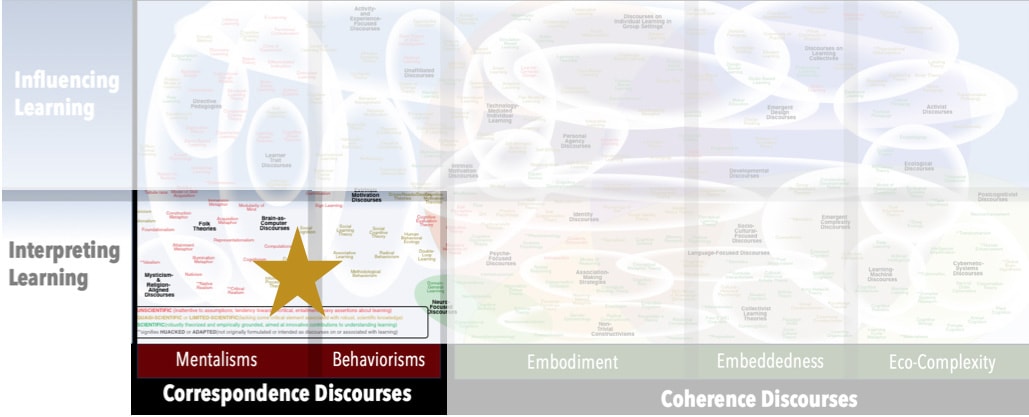Focus
Learning prompted by mass mediaPrincipal Metaphors
- Knowledge is … scope of possible actions and interpretations
- Knowing … the range of one’s behaviors and thoughts
- Learner is … an observer
- Learning as … changing behaviors, extracting information, changing thinking
- Teaching as … modeling
Originated
1980sSynopsis
Social Cognitive Theory is an extension of Social Learning Theory, which asserts that learning can be rooted in observations of others’ behaviors and the consequences of those behaviors (i.e., not solely based on direct experience). Social Cognitive Theory adds that one’s way of thinking (cognition) can be affected by models/behaviors encountered through symbolic communication and mass media. Relevant subdiscourses include:- Reciprocal Determinism (Reciprocal Causation; Triadic Reciprocality; Triadic Reciprocity; Triadic Reciprocal Determinism) (Albert Bandura, 1980s) – the principle that there is a reciprocal, co-determining relationship one’s thoughts and actions and one’s context
Commentary
See of Social Learning Theory.Authors and/or Prominent Influences
Albert BanduraStatus as a Theory of Learning
See of Social Learning Theory.Status as a Theory of Teaching
See of Social Learning Theory.Status as a Scientific Theory
See of Social Learning Theory.Subdiscourses:
- Reciprocal Determinism (Reciprocal Causation; Triadic Reciprocality; Triadic Reciprocity; Triadic Reciprocal Determinism)
Map Location

Please cite this article as:
Davis, B., & Francis, K. (2023). “Social Cognitive Theory” in Discourses on Learning in Education. https://learningdiscourses.com.
⇦ Back to Map
⇦ Back to List
